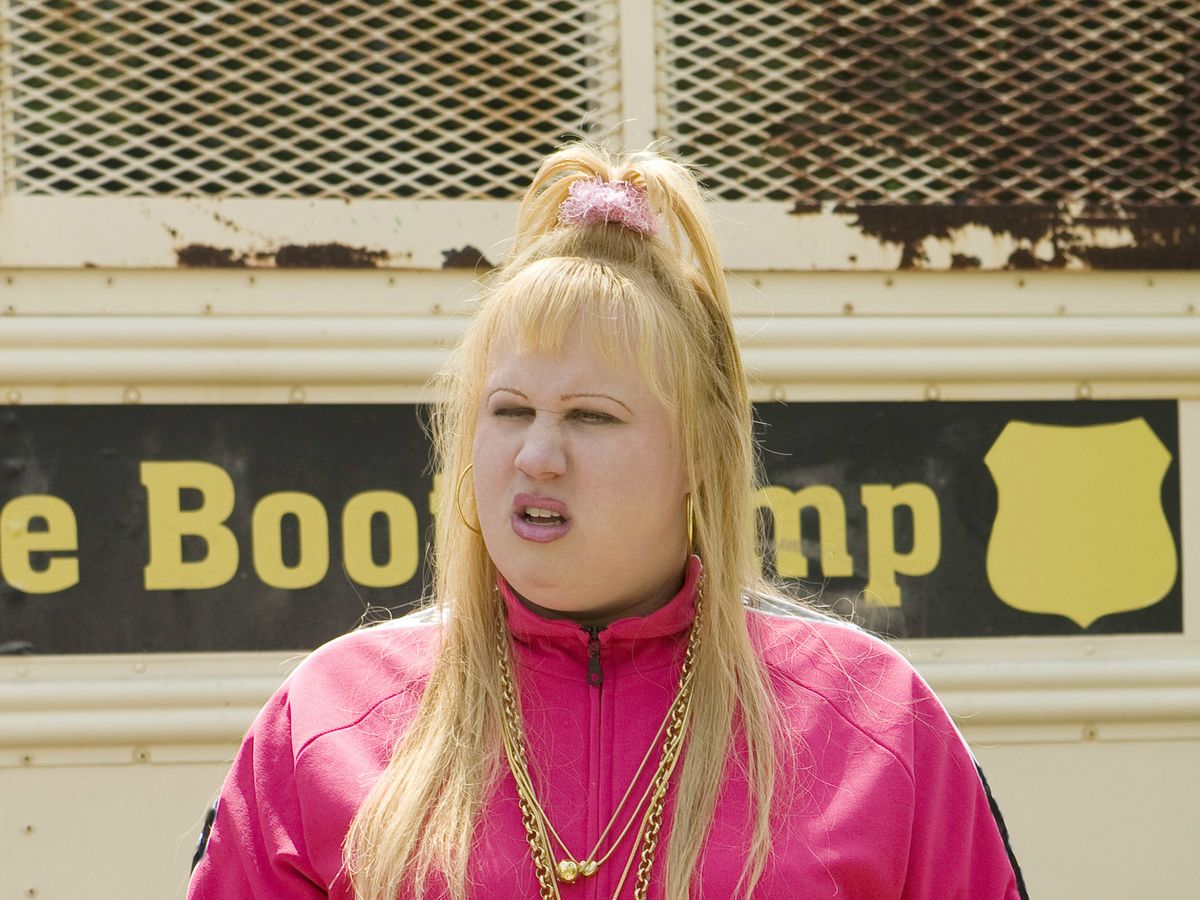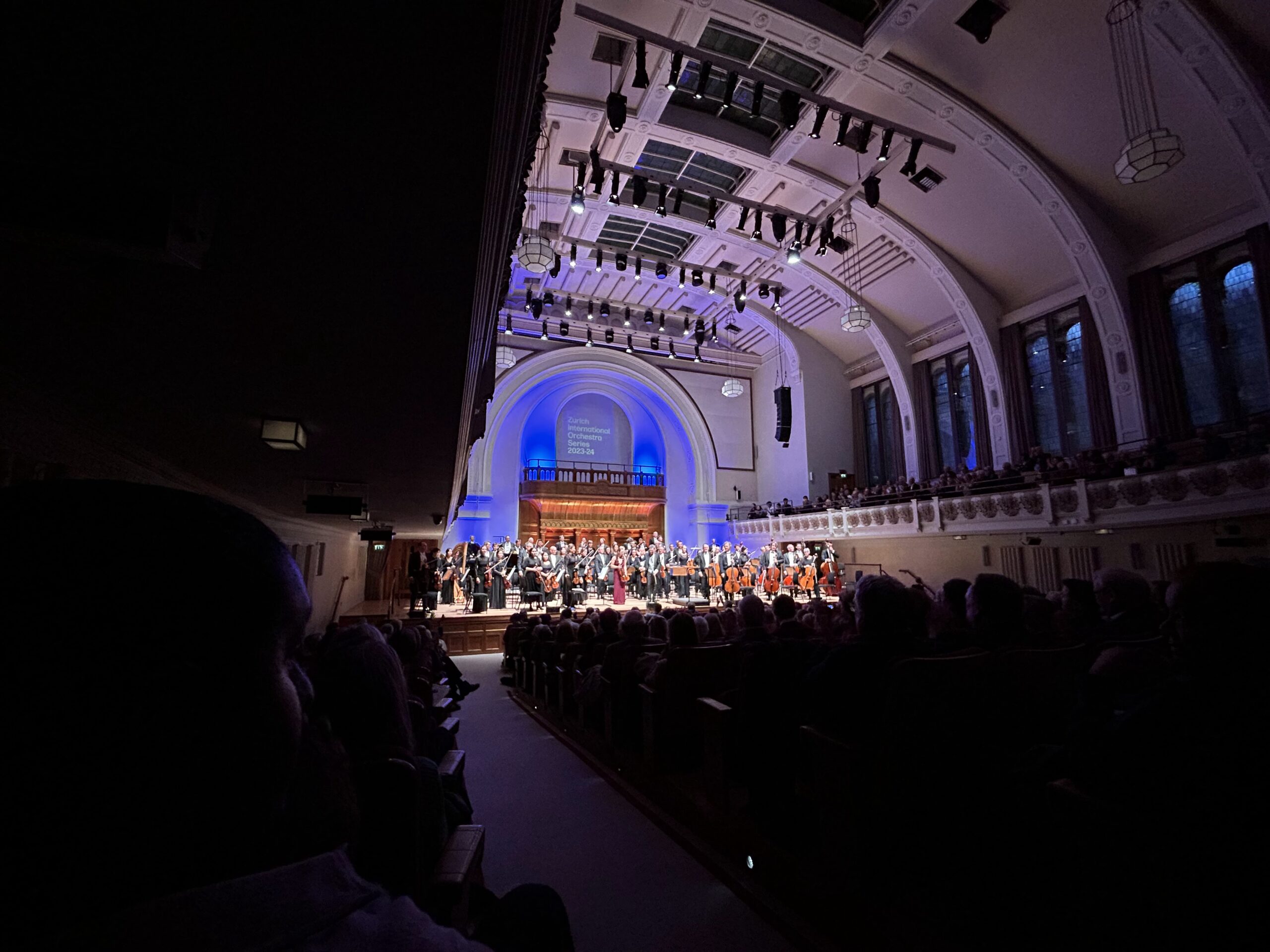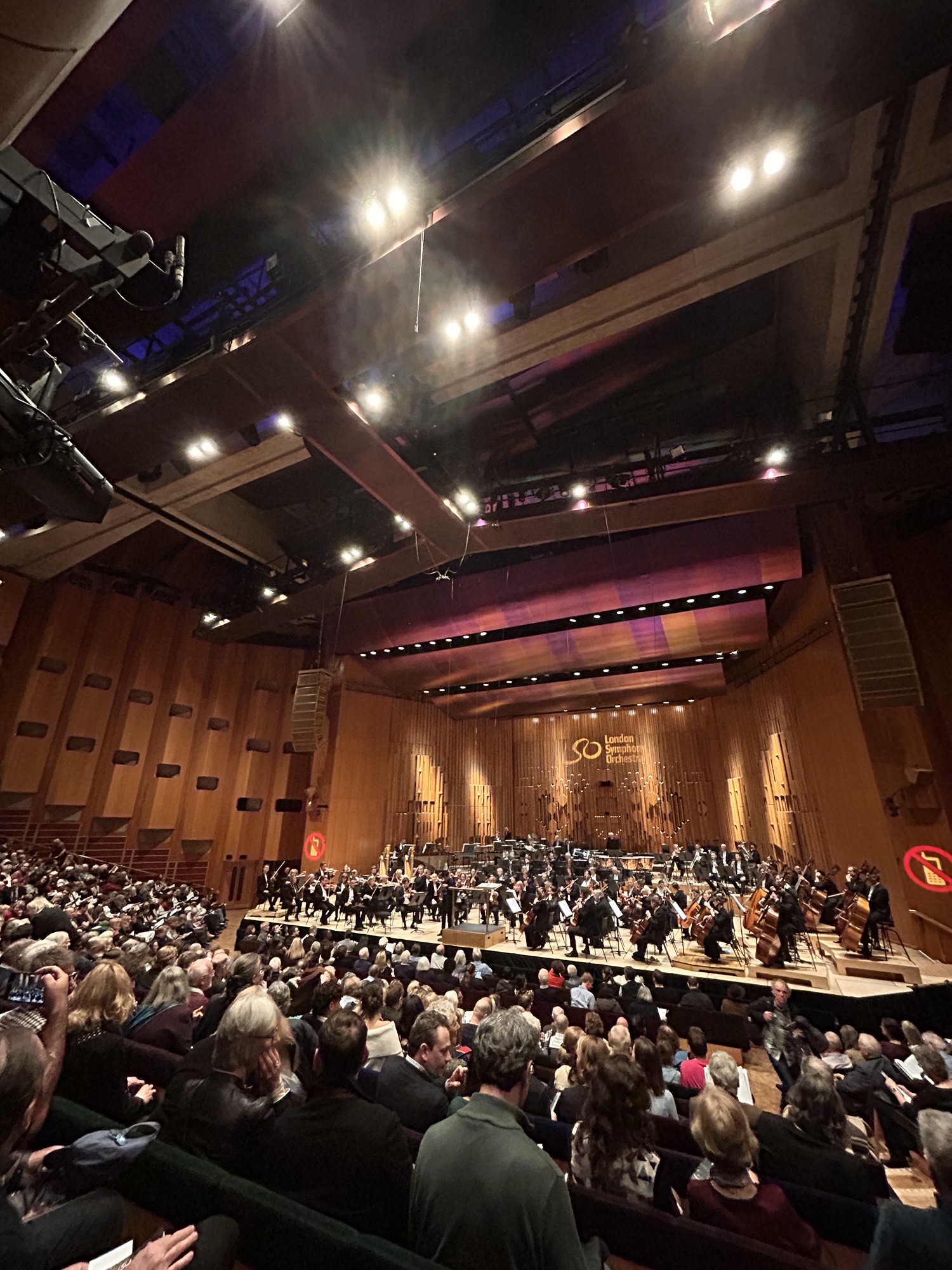It’s a toss up between finding the ideal spot in the Royal Albert Hall or holding your nose and listening to the live broadcast. After my first visit to the Royal Albert Hall, I think its probably the latter.
I finished off a day of coaching sessions, interviews and meetings with my first trip to the Albert Hall for the BBC National Orchestra of Wales’ concert last night. And I went in on a promming ticket too – first up in the gallery, and in the arena during the second half.
It was also the first time I’d prommed for (quite possibly) five years meaning the odds were stacked in favour of gaining some useful insights on where the innermost joy to this years Proms season is to be found. In that respect the trip didn’t disappoint.
I’d been inside the hall earlier in the day to interview the conductor for last night’s concert Elim Chan. She and I walked and talked as we moved from backstage to podium (the first time I’d done the walk from the bullrun to stage since 2011), and by the time we’d made it to the empty auditorium, I was reminded of the scale of the place.

The stage appeared as just a fairly banal area (as opposed to the elevated space it normally appears to punters like me during a concert). Out beyond the rail, one breathtaking view: long sweeping lines; opulent but not ornate or fussy; graceful movement throughout; warmth. All of this contributed to an unexpected sense of inclusion. It sounds slightly self-obsessed to say, but for a moment the Proms felt like home again.
Up in the gallery during the first half there was a similar atmosphere. The disordered presence of other human beings standing, sitting or lying around, some of them peering over shoulders to see the action way down below, creates a sense of both relaxation and urgency at the same
Wafting around is the order of the day up in the gallery. At the same time there’s a fear of missing out. Heads crane to get a better view in between shoulders, pillars and railings. In this way we’re all contributing to the live experience.

Here I felt part of the event. There was no one contextualising it, marketing it, or trying to turn it into something it wasn’t. It was just me and the live experience. Standing, leaning, and focusing. A meditative experience almost – Church-like – transporting me back to the early Promming experiences I’d had. It appears I had reconnected.
There was a surprising diversity amongst the crowd too. My friend Miya (her first Prom concert experience) said the same herself looking around the gallery. A range of ages from under 10s to over sixties. I can’t remember television ever commenting or showing that. I don’t recall any magazine, radio programme or indeed the Proms brochure itself talking about the audience other than in general terms. But a look around the gallery in a popular concert like this and much of the perceived problems classical music has marketing to different audience groups aren’t immediately obvious to me. Sure, maybe those who are looking at their mobile phones during the Elgar are distracted, but they’re here for some kind of experience. The fact that they felt motivated to come in the first place is surely what’s important.

As anchoring as this experience was, there were some drawbacks. The sound from the gallery lacked the detail I’m accustomed to and found myself getting frustrated. The Mendelssohn Hebrides Overture (and certain sections of the Elgar Sea Pictures after it) suffered from a lack of power.
Down in the arena was the best place to move to for Errolyn Wallen’s premiere This Frame Is Part Of The Painting. Rich colours, strong vocal and instrumental lines were evident combined with unexpected splashes of orthodox harmonic and melodic language that sought to exploit the acoustic. The addition of the organ from time to time gave things a more three-dimensional quality making for a more immersive experience.
Whilst hearing the detail from the arena was more satisfying, there were times in the Mussorgsky Pictures when that detail revealed weak spots in the ensemble.
The ambulatory opening accompanied by a wavering trumpet solo didn’t provide the silvery fearsome opening I’d expected from the opening of Pictures. Some sections dominated in tutti sequences – percussion and brass from time to time. And in The Old Castle out of kilter woodwind ensemble slightly detracted from the otherwise warm atmosphere conjured up by saxophone solo and lilting strings. There was a similar problem in the fourth Promenade.
A taut Battle of the Unhatched Chicks marked a turning point in the performance however, consolidated by The Market with renewed spirit, tighter ensemble, and more a compelling characterisation. Unexpectedly prominent trombones in the grand theme were arresting (the effect sounded like an accidental fog-horn on a bright sunny day. That said, on playback the idea behind bringing out that part of the score provided a fresh insight into the sequence.



